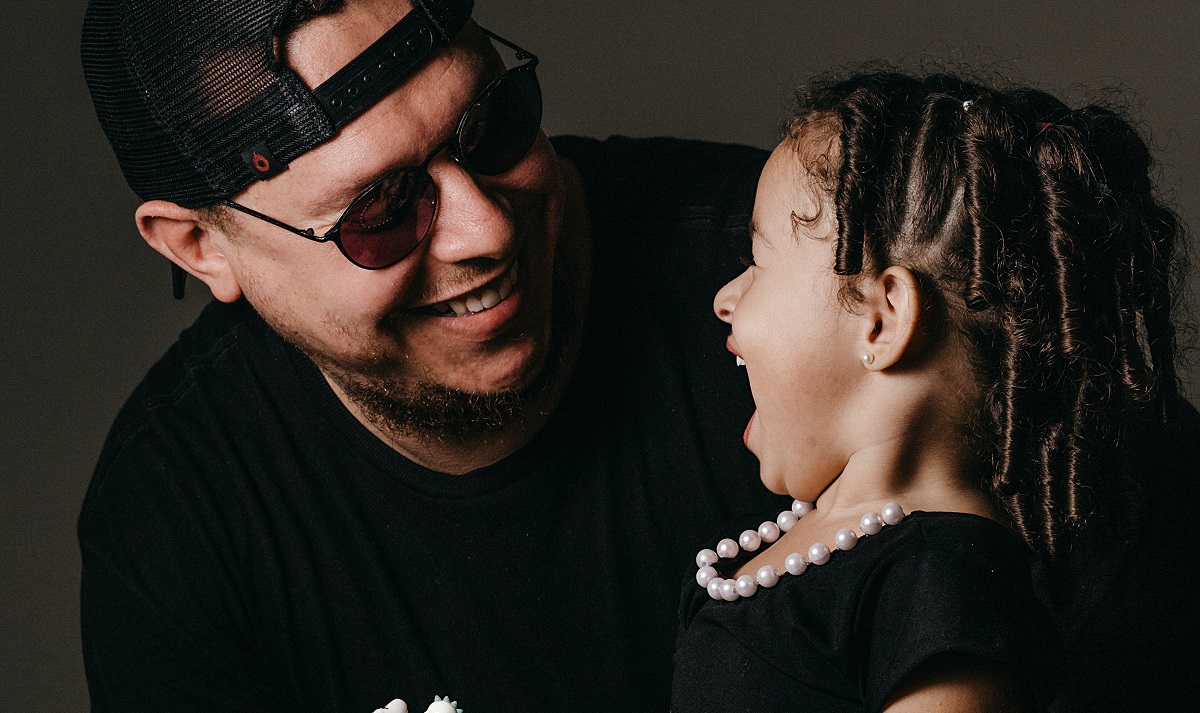We often equate vulnerability with weakness, but in reality, vulnerability is a superpower. Vulnerability can look like weakness because it involves an admission of our imperfections, but in reality, it can be one of our strongest points of character. This is because vulnerability demonstrates that we are comfortable being our true selves – warts and all – and no amount of intimidation or negative input from others has the power to steer us off course. Of course, it takes a lot of courage to be vulnerable. In this article, we will explore the concept of strengths in vulnerability a little further and look at how being vulnerable can in many ways make us invincible.

Why it is important to recognize the strengths and benefits of vulnerability?
Too often we act on the belief that showing people our failures and imperfections will make us look weak. This holds us back from the very risks that will eventually lead to success. How, then, can we empower ourselves to take those risks exactly when the potential failure may make us feel inadequate and make further attempts look more difficult than they already are? When you are in a vulnerable state, it is important to focus on your strengths so that you can find the strength to keep going. This can help you cope with the situation and eventually overcome it. In addition, by understanding your strengths, you can also work on improving your weaknesses [1]. The benefits of recognizing strengths when we are vulnerable include:
- Helps build self-confidence
- Aids in developing a positive outlook toward life
- Motivates an individual to work harder and achieve more
- Encourages an individual to take risks
- Assists in identifying areas of improvement
- Helps set realistic goals
- Builds resilience
- Teaches adaptability
- Creates opportunities for growth
- Enables one to live a fulfilling life
9 examples of strengths found in vulnerability
Some of the examples that demonstrate vulnerability as a strength include:
- authenticity
- truthfulness
- transparency
- trust in relationships
- resilience
- self-confidence
- empathy
- personal growth
Authenticity
When you embrace vulnerability, you present your true self to others without pretenses. This authenticity shows others that you are trustworthy, which fosters deeper connections.
Truthfulness
Being open about your feelings and experiences demonstrates that you are reliable. This can enhance your professional credibility as well as the integrity of your relationships outside of work.
Transparency
In relationships, transparency is sharing your thoughts and emotions openly without any pretense or people-pleasing. Transparency has the power to build stronger, more trusting relationships. Transparency encourages others to be open with you as well.
Trust in relationships
By showing vulnerability, you demonstrate trust in others, which can strengthen mutual bonds. This trust is fundamental for deep and supportive relationships.
Resilience
Just because you have the strength to be vulnerable does not guarantee that you will get the results you want. Thus, vulnerability has the power to remind you that failure is a part of being human, and so there is nothing wrong with learning from your mistakes and trying again. This mindset helps you develop resilience so that each time you confront and overcome a challenge, you grow stronger and more capable of facing the next challenge – and the next.
Self-confidence
Embracing your vulnerabilities can boost your self-confidence as it shows you and others that accept yourself fully. This acceptance empowers you to keep going in the face of other’s unkindness or unwarranted criticism.
Empathy
Empathy is the ability to understand and share the feelings of another person by putting yourself in their shoes. Vulnerability helps develop empathy because it allows you to connect with others’ experiences and emotions more deeply. This empathy fosters compassion and stronger interpersonal connections.
Personal growth
Acknowledging and working through vulnerabilities can lead to significant personal development. Honesty about your mistakes pushes you to learn, adapt, and become a better version of yourself.

How do you identify your strengths in being vulnerable?
Let’s get into how to identify and master vulnerability strengths. There are many different types of vulnerability, but identifying your strengths can be a challenge when you’re feeling at risk. However, once you know your strengths, you can use them to your advantage to work through your fears of failure. One way to identify your vulnerability strengths is by taking a personality test. The most popular strengths test is the HIGH5 strengths test. It is a great resource to consider when identifying your vulnerability strengths. For personality tests, the most popular is the Myers-Briggs Type Indicator (MBTI). This test will help you to understand how you process information and make decisions. It will also give you insight into your strengths and weaknesses.
Another way to identify your vulnerability strengths is to ask for feedback from others. This can be done by asking family, friends, or colleagues for their honest opinion about your strengths and weaknesses. Once you have this feedback, you can start to work on improving your weaknesses and developing your strengths. Yet another way to identify your vulnerability strengths is to keep a journal. In your journal, you can track your progress and reflect on your successes and challenges. This will help you to identify areas that you need to work on and areas where you are excelling.
For example, if you are an introvert, you might use your strength of being able to concentrate deeply on one task at a time to write a book. If you have a knack for understanding others’ needs, you might use this strength to build relationships and become a successful salesperson. No matter what your strengths are, there are ways that you can use them to your advantage. The key is to identify your strengths and then find ways to master them. With hard work and dedication, you can overcome any vulnerability and become a stronger person as a result.
How do you improve your vulnerability strengths?
To improve your vulnerability strengths, lean into your personal strengths to create a foundation of trust and confidence. Here are some strengths you may discover and how you can leverage them to help you combine vulnerability with ultimate success:
- Self-awareness helps you in vulnerable moments by allowing you to recognize and understand your behavior, making it easier to learn from your mistakes.
- Emotional intelligence can help you recognize and process your emotions before expressing them vulnerably to others.
- Communication strengths allow you to articulate your feelings clearly, making it easier to share them in a way that fosters understanding.
- Resilience helps with vulnerability by giving you the strength to embrace emotional risks and bounce back from any discomfort or setbacks that arise from being open and honest.
- Optimism can remind you that being vulnerable isn’t a weakness but a path to growth and deeper connections, helping you recover when vulnerability feels challenging.
When you use your strengths to guide your vulnerability, you’ll find that it becomes a more natural and empowering experience.

5 examples of weaknesses in vulnerability
When it comes to vulnerability, certain weaknesses can prevent us from fully opening up and connecting with others. These weaknesses often stem from fear, insecurity, or past experiences that make it difficult to share our true selves. Below are five examples of weaknesses in vulnerability that can keep us from building deeper, more authentic relationships.
1. Not being able to handle constructive criticism
Accepting constructive criticism is a must if you want to grow and develop [2]. If you can’t handle hearing what you need to change or improve, then you’ll never be able to progress. This is a weakness in vulnerability because it prevents you from being able to learn and improve.
2. Shying away from difficult conversations
Difficult conversations are a part of life. If you avoid them, you’ll never be able to resolve conflict or move forward. As such, if you have this weakness, it will keep you from being able to communicate effectively.
3. Avoiding conflict
Conflict is inevitable. If you try to avoid it, you’ll only make things worse. This is a weakness in vulnerability because it prevents you from being able to deal with problems head-on [3].
Being too quick to react to feedback
If someone you trust has told you that you are “overly sensitive,” they might mean that you tend to react in ways that don’t match the circumstances [4]. This often stems from insecurity or a lack of perspective, both of which may hold you back from reaching your full potential.
5. Lacking assertiveness
If you’re not assertive, you’ll have trouble speaking up for yourself and getting what you want. This will likely lead to feelings of resentment and helplessness, cutting you off from being the person you really want to be.
Vulnerability as strength FAQ
How can you turn vulnerabilities into strengths?
There are a few ways to turn your vulnerabilities into strengths:
- Use them as motivation – Your vulnerabilities can be a source of inspiration and drive. If you’re feeling insecure about something, use that as fuel to work harder and prove yourself.
- Be honest about them – One of the best ways to deal with your vulnerabilities is to simply be honest about them. Acknowledging your weaknesses can make you seem more relatable and human, which can in turn make people more likely to trust you.
- Use your vulnerabilities as a learning opportunity – Your vulnerabilities can be a chance to learn and grow. If you’re feeling insecure about something, take that as an opportunity to learn more about it and become more confident.
- Embrace them – One of the best things you can do with your vulnerabilities is to simply embrace them. Own up to your weaknesses and use them as a strength. This can make you seem more confident and self-assured, which can be attractive to others.
What are skills for vulnerability?
Skills for vulnerability include self-awareness, empathy, active listening, and emotional intelligence, enabling you to connect with others and handle difficult emotions effectively.
What is the positive side of vulnerability?
The positive side of vulnerability includes building trust, fostering genuine relationships, and encouraging personal growth and resilience. When practiced frequently, vulnerability also has the power to reduce anxiety and stress [5].
What are the 4 characteristics of vulnerability?
The four characteristics of vulnerability are authenticity, openness, courage, and emotional exposure.
References:
- Schwabel, D. (2013). Brene Brown: How vulnerability can make our lives better. https://www.forbes.com/sites/danschawbel/2013/04/21/brene-brown-how-vulnerability-can-make-our-lives-better/.
- Korol, C. (2022). How your fear of criticism could be limiting your life. Psychology Today. https://www.psychologytoday.com/us/blog/still-mind/202209/how-your-fear-of-criticism-could-be-limiting-your-life.
- (n.d.). Why you need to stop avoiding conflict (and what to do instead). PsychCentral. https://psychcentral.com/blog/why-you-need-to-stop-avoiding-conflict-and-what-to-do-instead.
- Dembling, S. (2016). What it means when someone tells you ‘You’re too sensitive’. Psychology Today. https://www.psychologytoday.com/us/blog/the-introverts-corner/201605/what-it-means-when-someone-tells-you-youre-too-sensitive.
- Davis, T. (2023). 3 benefits of vulnerability. Psychology Today. https://www.psychologytoday.com/us/blog/click-here-for-happiness/202210/3-benefits-of-vulnerability.



![How to Build Habits in 2022 [Complete Guide]](https://high5test.com/wp-content/uploads/2022/01/How-to-Build-Habits-in-2022-Complete-Guide-300x188.jpg)




